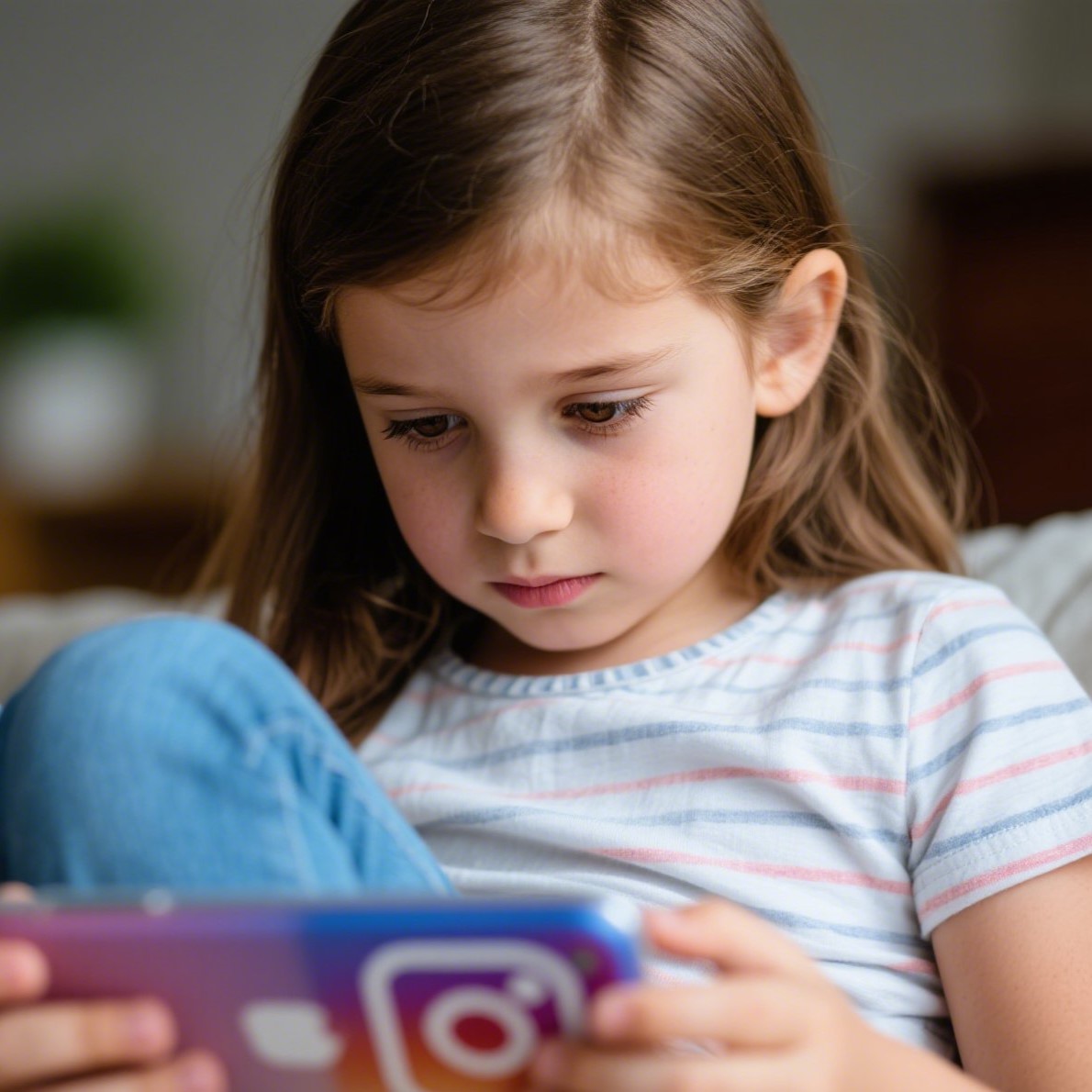Remember when “screen time” meant Saturday morning cartoons and a sugar rush from cereal? Now, it’s TikTok trends, Instagram filters, and YouTube rabbit holes that somehow start with cute puppies and end in conspiracy theories.
If you’re a parent, guardian, or anyone raising a tiny human in the 21st century, you’ve probably asked yourself:
“Is social media messing with my kid’s mind?”
Spoiler alert: It might be.
Let’s dive deep (and creatively) into how social media is shaping the mental health of children—and what we can do about it.
📱 1. The Comparison Trap: Highlight Reels vs. Real Life
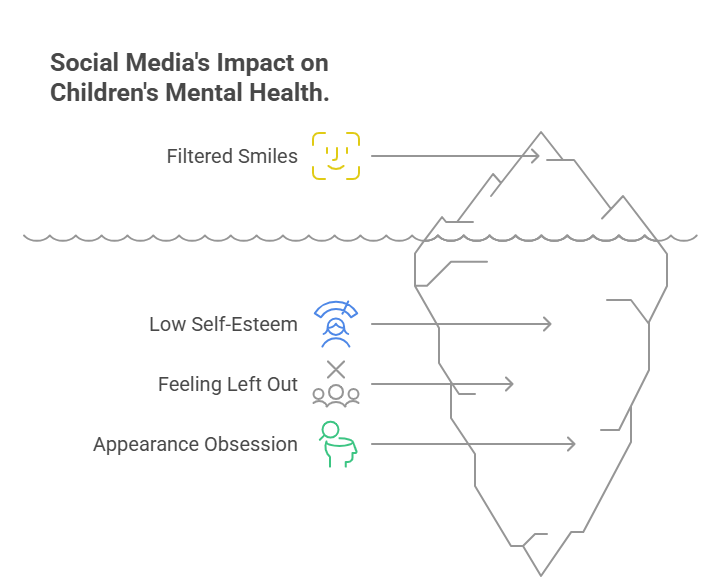
Kids scroll through perfect selfies, glow-ups, and lifestyles that look like a reality show sponsored by happiness. But behind those filtered smiles is a dangerous illusion.
Mental health red flags:
- 📉 Low self-esteem: “Why don’t I look like that?”
- 🙍♂️ Feeling left out: “Why wasn’t I invited?”
- 🤳 Obsession with appearance: “Maybe I just need the right filter.”
🧠 Reality check: Children are comparing their behind-the-scenes to someone else’s greatest hits—and it’s wrecking their confidence.
💬 2. Likes, Follows, and Validation Addiction
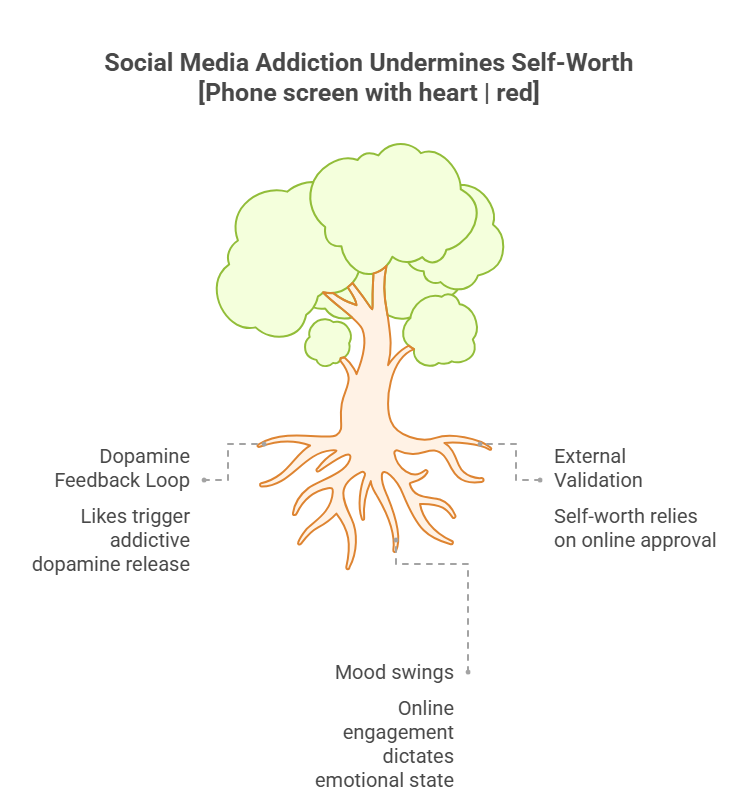
Every like is a tiny dopamine hit. Every comment is social currency. Social media trains kids to seek validation externally, not internally.
Mental health red flags:
- 😰 Anxiety waiting for likes or replies
- 🙃 Mood swings based on online engagement
- 😞 Feeling “invisible” when posts go unnoticed
🧠 The mind shift: Instead of developing self-worth from within, kids begin to rely on a scrollable scoreboard.
🙅 3. Cyberbullying: The Silent Stalker
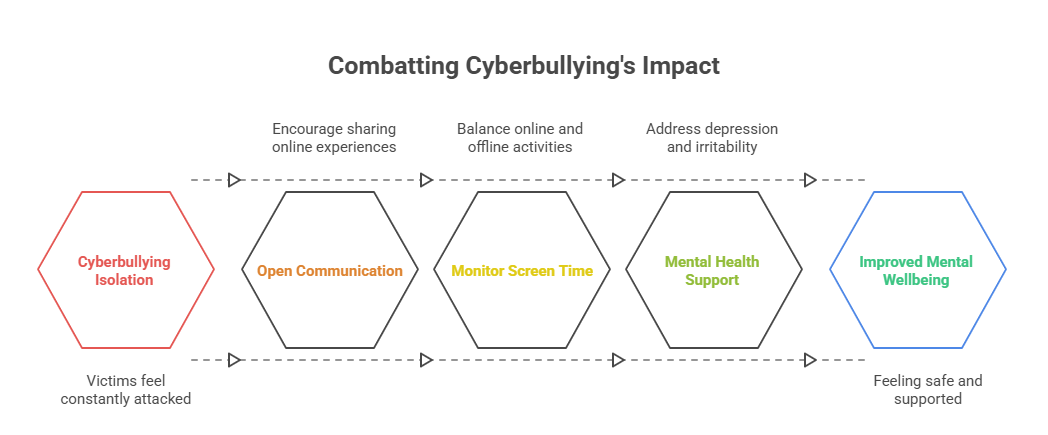
Unlike old-school bullies, today’s tormentors don’t need a hallway or a lunchroom—they just need WiFi.
Mental health red flags:
- 🤐 Sudden silence or withdrawal
- 📱 Hiding their screens
- 😢 Depression, self-doubt, or increased irritability
🧠 The ugly truth: Online bullying feels inescapable—it follows kids home, into their rooms, and even into their dreams.
😔 4. Fear of Missing Out (FOMO) Is Real
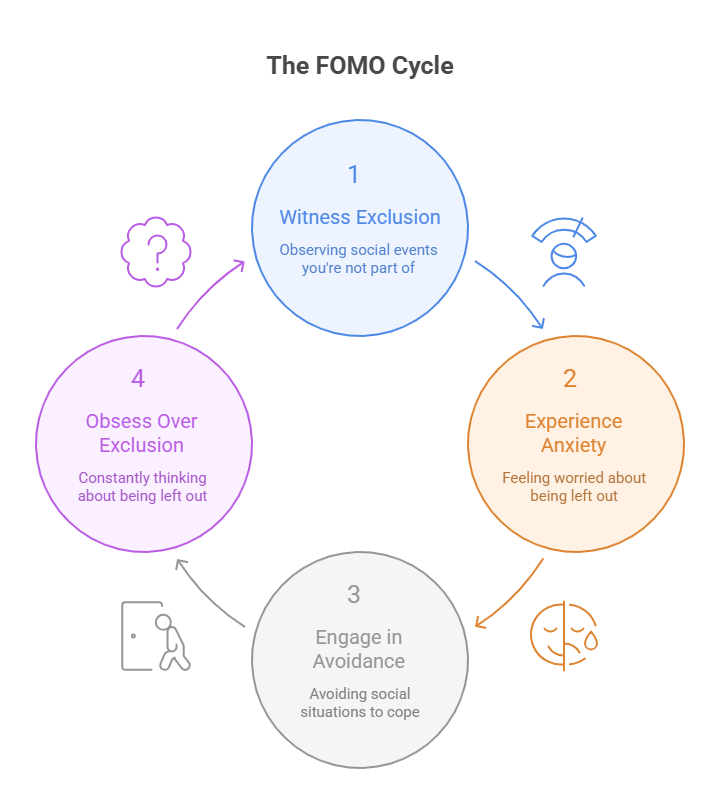
Scrolling through sleepovers, parties, or hangouts you weren’t invited to? It’s like watching your own exclusion on replay.
Mental health red flags:
- 😟 Increased anxiety
- 🚫 Isolation or avoidance behavior
- 💭 Obsessing over being “left out”
🧠 The emotional impact: FOMO creates a sense of being less-than—socially, emotionally, even physically.
🛑 5. Overstimulation & Shortened Attention Spans
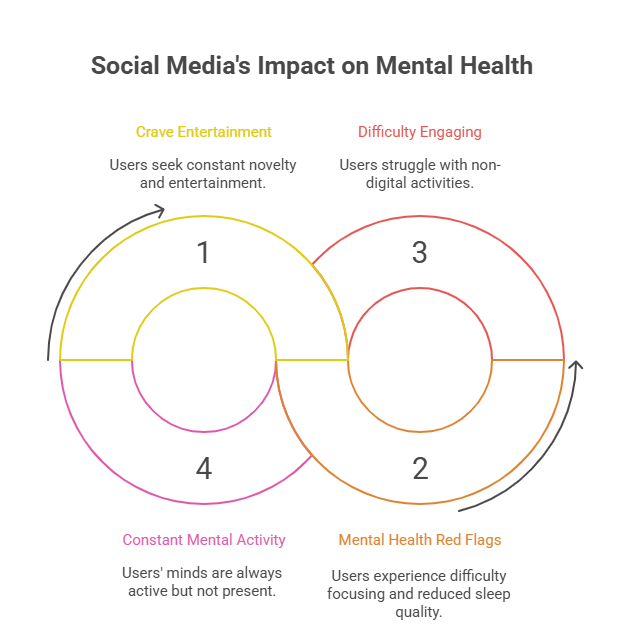
From 15-second videos to never-ending loops of content, social media trains the brain to crave constant entertainment and novelty.
Mental health red flags:
- 😵💫 Trouble focusing
- 💤 Reduced sleep quality from late-night scrolling
- 📚 Difficulty engaging in non-digital activities like reading, studying, or even family meals
🧠 The downside: Their minds are constantly “on,” but rarely present.
✅ What You Can Do: A Digital Reality Check
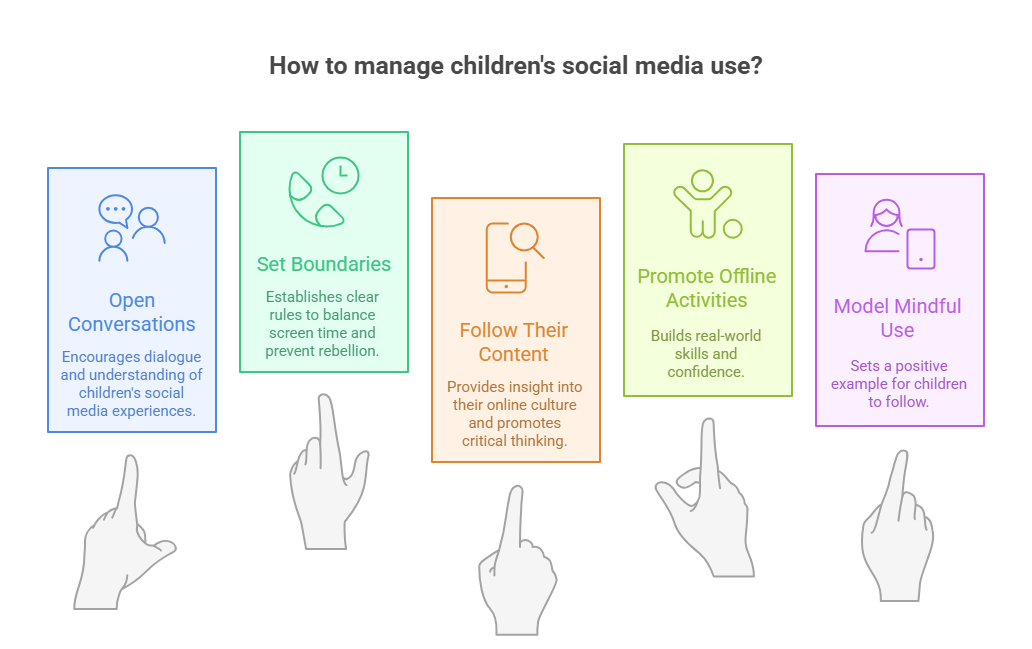
Here’s how you can help your child survive—and even thrive—in the age of social media:
👂 1. Talk About It
Open up conversations. Ask, don’t assume.
“What do you like about social media?”
“Have you ever seen something that made you feel bad?”
⏳ 2. Set Boundaries Together
Instead of banning apps outright (cue teenage rebellion), co-create rules:
- No phones in bedrooms
- Screen-free dinner
- Curated time limits (yes, even for YouTube shorts)
📲 3. Follow Who They Follow
Not to stalk—but to understand. Know the culture they’re swimming in. Discuss content critically:
“Do you think that’s real?”
“Why do you think this post got so many likes?”
🧠 4. Promote Offline Confidence
Balance screen time with green time. Encourage activities that build real-world skills and confidence—sports, art, journaling, music, or just hanging out IRL.
❤️ 5. Model Mindful Scrolling
Kids learn more from your behavior than your words. So if you’re constantly glued to your phone, they’ll follow suit.
✨ Remember: You’re not just raising a child—you’re raising a future adult who will shape the next generation of the digital world.
🌱 Final Thought: Raise Humans, Not Avatars
Social media isn’t evil—it’s just loud. And messy. And addictive. But it’s also a space where kids learn, laugh, and connect. The key is to guide, not control. Support, not spy. Educate, not eliminate.
Because in the end, mental health matters more than followers.
And your child’s self-worth should come from within—not from a screen.
Your Turn:
How do you help your kids navigate the pressures of social media? Have they ever opened up about how it makes them feel? Share your experience (or parenting hacks) in the comments below 👇💬

